Airlines, Airports and Airliners News 21 to 27 March 2022
Compiled by Willie Bodenstein
Google Banner Ad
THIS WEEK IN AIRLINES, AIRPORTS AND AIRLINERS
ICAO Council reiterates its concern over DPRK missile testing.
Liberia Airport Authority Awards New Ground Handling License to National Aviation Services (NAS).
Ethiopian Airlines and Boeing sign memorandum of understanding for new 777-8 freighter.
Pratt & Whitney successfully tests GTF Advantage engine on 100% sustainable aviation fuel.
KLM operating direct flights to 167 destinations this summer.
TAP awarded at the World Travel Awards.
Qantas signs second major sustainable fuel deal.
New Yorkers are one flight closer to New Zealand with non-stop flights between the Big Apple and Auckland.
Google Block Ad
CAO COUNCIL REITERATES ITS CONCERN OVER DPRK MISSILE TESTING

?
In light of its continued missile testing in international airspace, the ICAO Council is again urging the Democratic People's Republic of Korea (DPRK) to act in accordance with the Convention on International Civil Aviation (Chicago Convention) and comply with applicable ICAO Standards and Recommended Practices (SARPs).
As an ICAO Member State, the DPRK is expected to notify adjacent countries of any activity or incident arising from its territory which may pose risks to nearby civil aviation routes or operations. This would include matters such as volcanic ash clouds from local eruptions, or aerial testing which may affect civil aviation.
The ICAO Governing Body reiterated its concern after recent episodes involving unannounced missiles launches which pose a serious risk to international civil aviation. The tests are also in defiance of United Nations Security Council Resolutions 1718, 2270 and 2321.
As part of its recent decision, the council has requested the secretariat to continue to actively monitor the situation.
A specialized agency of the United Nations, ICAO was created by governments in 1944 to support their diplomacy on international air transport matters. Since that time, countries have adopted over 12,000 standards and practices through ICAO which help to align their national regulations relevant to aviation safety, security, efficiency, capacity and environmental protection, enabling a truly global network to be realized. ICAO forums also provide opportunities for advice and advocacy to be shared with government decision-makers by industry groups, civil society NGOs, and other officially-recognized air transport stakeholders.
LIBERIA AIRPORT AUTHORITY AWARDS NEW GROUND HANDLING LICENSE TO NATIONAL
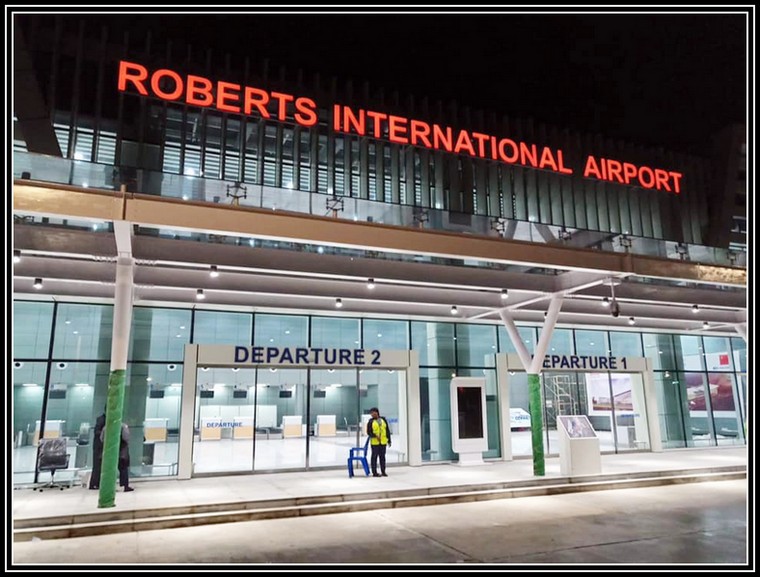
The Liberia Airport Authority has awarded an exclusive ten-year ground handling management contract to National Aviation Services (NAS) (www.NAS.aero), the fastest growing aviation service provider in the emerging markets. Under the terms of the cooperation, NAS will provide comprehensive ground handling services at the Roberts International Airport (ROB) airport in Liberia. This includes passenger handling, ramp services and lost luggage handling for all airlines operating to and from the airport. These airlines include Air France - KLM, Ethiopian Airlines, Brussels Airlines, Air Côte d'Ivoire, Kenya Airways, Royal Air Maroc and ASKY.
Speaking about the award, Musa Shannon, Chairman of the board of LAA said “On behalf of the President of the Republic of Liberia His Excellency Dr. George Manneh Weah, the Board of Directors, management and staff of the Liberia Airport Authority (LAA) , we would like to state that we are looking forward to our partnership with NAS. This partnership will greatly improve our technical and professional capacities at the Roberts International Airport (RIA) and allow the LAA to provide a world-class experience while taking a major step forward in the aviation industry.”
NAS is currently the largest ground handler in Africa with a presence in over 60 airports across the continent, including countries like Liberia, Cote d'Ivoire, Rwanda, DRC, South Africa, Kenya, Uganda, Tanzania and Mozambique. Globally, the company operates in more than 60 airports across Africa, the Middle East, South Asia and Europe. Their broader portfolio of services includes airport technologies, lounge management, meet and assist at airports as well as training.
Hassan El-Houry, Group CEO of NAS highlighted “We are excited to be expanding our long standing relationship with the Liberia Airports Authority and remain grateful for their continued trust in NAS. As a part of our operations in the country, we remain committed to enhancing and upgrading both, systems and processes at the Roberts International Airport to bring it on par with international levels. We have also started investing in the required infrastructure, equipment and staff training to adhere to the highest standards of quality and service excellence.”
With more than 10,000 employees, NAS serves over 100 customers including seven out of the world's top ten international airlines. NAS is one of the first ground handlers in the world to be IATA Safety Audit for Ground Operations (ISAGO) certified and holds ISO, EMS, RA3 and OHSAS certifications.
El-Houry added, “With our strong presence in Africa, the Middle East and South Asia, most airlines are aware of the quality-of-service NAS offers as well as our focus on safety and security. We truly believe in the potential of the Liberian aviation industry and are keen to develop and grow it further in the coming years.”
Google Block Ad
ETHIOPIAN AIRLINES AND BOEING SIGN MEMORANDUM OF UNDERSTANDING FOR NEW 777-8 FREIGHTER

Ethiopian Airlines, the largest and leading aviation group in Africa and its longstanding partner Boeing [NYSE:BA] has announced the signing of a Memorandum of Understanding with the intent to purchase five 777-8 Freighters, the industry's newest, most capable, and most fuel-efficient twin-engine freighter.
The Memorandum of Understanding to order the 777-8 Freighter will enable Ethiopian Airlines to meet expanding global cargo demand from its hub in Addis Ababa and position the carrier for long-term sustainable growth.
“Consistent with our history of aviation technology leadership in Africa, we are pleased to sign this MoU with our longstanding partner Boeing, which will make us join select group of launch customer airlines for the fleet. In our vision 2035, we are planning to expand our cargo and logistics business to be one of the largest global multimodal logistics providers in all continents. To this effect, we are increasing our dedicated freighter fleet with the latest technology, fuel-efficient and environment-friendly airplanes of the 21st century. We have also started the construction of the largest E-commerce Hub Terminal in Africa.” said Ethiopian Airlines Group CEO Tewolde Gebremariam. “The new 777-8 Freighters will be instrumental in this long journey of growth agenda. Today, our air cargo services cover more than 120 international destinations around the world with both belly hold capacity and dedicated freighter services.”
Boeing launched the new 777-8 Freighter in January and has already booked 34 firm orders for the model, which features the advanced technology from the new 777X family and proven performance of the market-leading 777 Freighter. With payload capacity nearly identical to the 747-400 Freighter and a 30% improvement in fuel efficiency, emissions and operating costs, the 777-8 Freighter will enable a more sustainable and profitable business for operators.
PRATT & WHITNEY SUCCESSFULLY TESTS GTF ADVANTAGE ENGINE ON 100% SUSTAINABLE AVIATION FUEL
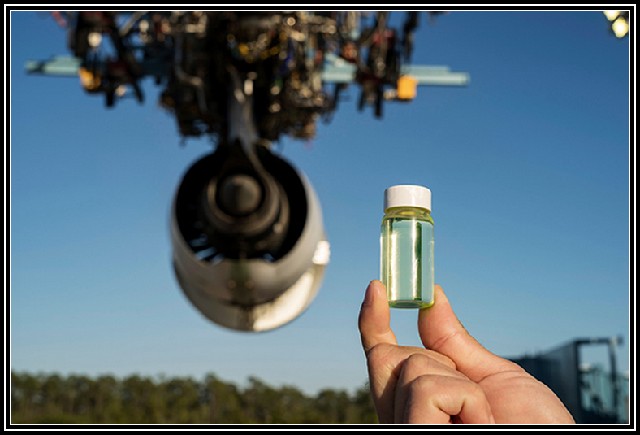
Pratt & Whitney has announced that it has successfully tested the GTF Advantage engine configuration with 100 percent sustainable aviation fuel (SAF). The test took place at the company's facility in West Palm Beach, Florida, USA starting on March 1 and marks a key step on the road toward 100 percent SAF operation of GTF-powered aircraft. The test is also a key element of an extensive development program to ready the GTF Advantage for entry into service in 2024, by validating the engine's performance on 100 percent SAF in thrust transients, starting and operability.
“We're thrilled to have successfully tested the GTF Advantage engine on unblended SAF,” said Graham Webb, chief sustainability officer at Pratt & Whitney. “The GTF Advantage represents the greenest, lowest emission engine in the industry and it is now demonstrating full operational capability for the greenest aviation fuels of today and tomorrow. Operation on 100 percent SAF is a key component of the industry's commitment to net zero carbon emissions by 2050 and the completion of these tests get us closer to that goal.”
Pratt & Whitney has been actively involved in testing SAFs for almost two decades and helped to establish the technical standards that allow today's engines to operate on SAF blends of up to 50 percent with standard kerosene. Pratt & Whitney is working towards validating its engines to operate with 100 percent SAF and the company continues to collaborate closely with the Commercial Aviation Alternative Fuels Initiative (CAAFI) and ASTM International in service of that goal.
“Sustainable aviation fuels are central to the challenge of decarbonizing aviation and reaching our industry's net zero goal. Validating and certifying the GTF Advantage engine on 100 percent SAF will ensure this engine's ability to deliver sustainable propulsion to our customers over many decades of service,” said Sean Bradshaw, technical fellow for sustainable propulsion at Pratt & Whitney. “We remain dedicated to working with the industry on creating a viable path for SAF development, production and distribution.”
Pratt & Whitney used 100 percent Hydroprocessed Esters and Fatty Acids Synthetic Paraffinic Kerosine (HEFA-SPK) fuel acquired from World Energy for the test. HEFA-SPK is a specific type of hydrotreated vegetable oil fuel used in aviation and is considered a leading alternative replacement for conventional jet fuel by CAAFI due to the sustainability of its feedstock.
The GTF is the world's most efficient and sustainable single-aisle aircraft engine. The GTF family has lowered fuel consumption and carbon emissions up to 20 percent compared to prior-generation engines. As a result, GTF engines have saved more than 600 million gallons (two billion litres) of fuel and more than six million metric tonnes of CO2 since entering service in 2016. The engine's revolutionary geared fan architecture is the foundation for more sustainable aviation technologies in the decades ahead. Learn more at pwgtf.com.
Google Block Ad
KLM OPERATING DIRECT FLIGHTS TO 167 DESTINATIONS THIS SUMMER
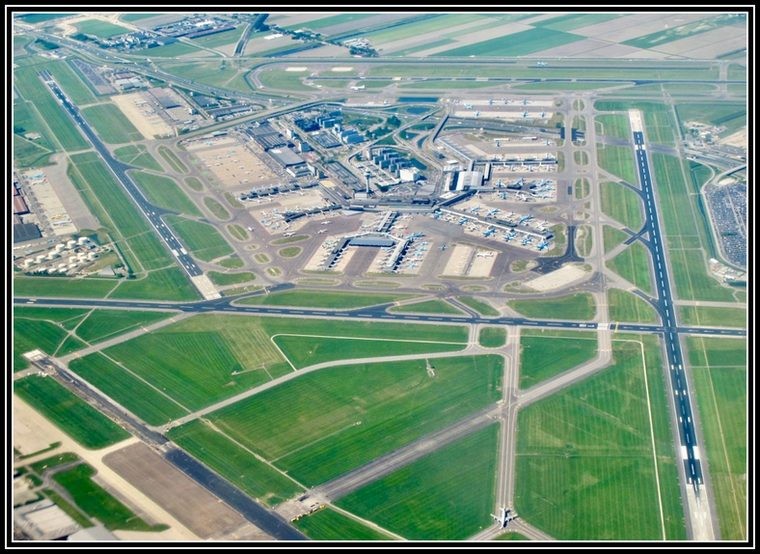
With direct flights to 167 destinations, KLM is ready for summer. Between 27 March and 29 October, KLM will fly to 96 European and 71 intercontinental destinations, offering excellent choice for business and leisure travellers alike.
Demand for air travel is increasing as Covid-19 restrictions are lifted in the Netherlands and other EU countries. KLM has responded by expanding capacity on European routes by 10% compared to last year, almost matching the 2019 pre-pandemic level. This amounts to about 16 million seats in total. The Portuguese cities of Porto and Lisbon, with three and four flights a day respectively, are just some of the destinations seeing an increase in KLM flights.
The success of the new destinations of Belgrade, Dubrovnik and Palma de Mallorca, which were added to the KLM route network last year, means they will once again be included in the summer schedule. KLM also expects business travellers to return, which is why frequencies are added to British, German and Polish routes.
Services to Kyiv, St Petersburg and Moscow continue to be suspended. KLM is keeping a close eye on developments in the region.
Intercontinental: frequently to the Caribbean and more often to the USA
KLM has also increased capacity on its intercontinental route network by 17% compared to last year, in response to a rising trend in bookings. This summer, we will operate daily flights to Aruba, Bonaire and Curaçao, increasing the frequency to Curaçao to twice daily during the summer holiday season. Port of Spain, KLM's new tropical destination in the winter schedule, is included in the summer schedule too, offering customers thrice weekly flights between Amsterdam and the capital of Trinidad and Tobago.
Since the USA eased travel restrictions in November 2021, demand for flights has grown steadily. KLM capacity to the USA this summer matches that of 2019. The resumption of flights to Salt Lake City and the new addition of Austin to our route network, means we will be operating direct services this summer to 12 destinations in the USA, the highest number ever. Austin, the state capital of Texas, is a flourishing technology hub and home to a large number of technology companies. It is also a thriving student city with a vibrant nightlife, Formula 1 and the major South by Southwest annual festival (SXSW). KLM operates three flights a week to Austin.
We are also seeing more and more countries in Asia opening up to visitors again. Although Covid-19 travel restrictions vary from country to country, summer demand is increasing for such destinations as the Philippines, Thailand, Singapore and Bali. India too has indicated that it will be easing travel restrictions. KLM will respond by increasing frequencies to Delhi and Mumbai. Asia continues to be a strong and important market for cargo, allowing us to continue to operate lower frequency services to all pre-pandemic destinations.
Travel restrictions continue to apply in China, which means we cannot yet resume our usual network services to China. Due to EU sanctions against Russia, KLM is not operating in Russian airspace. Flight times to and from South Korea, Japan and China are consequently on average two hours longer than usual. Flights to Japan and China are currently making a stopover in Seoul.
Capacity on most routes to South America has been restored to more or less pre-pandemic levels. We are currently operating daily services to Sao Paulo, Panama City and Lima, with a minimum of six flights a week to Quito/Guayaquil, Bogota/Cartagena, Rio de Janeiro and Buenos Aires/Santiago de Chile.
Passengers wanting to fly to Africa this summer can now choose between ten destinations. Capacity has been expanded on many routes, compared to last summer, to meet the growing demand. Zanzibar, which was added to our route network last year, is once again included in the summer schedule. KLM is also operating services to Johannesburg, Cape Town, Accra, Lagos, Kigali, Entebbe, Nairobi, Kilimanjaro, and Dar es Salaam.
TAP AWARDED AT THE WORLD TRAVEL AWARDS
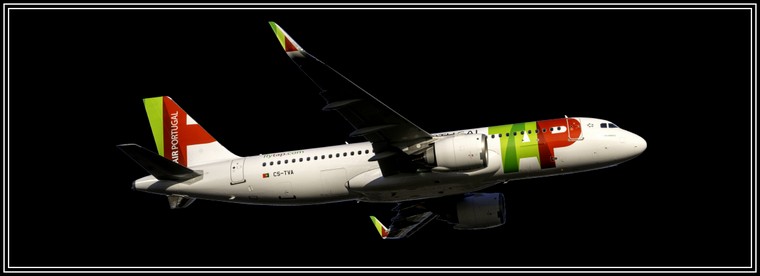
TAP won the World Travel Awards in the categories “Europe's leading Airline to South America 2021” and “Europe's leading Airline to Africa 2021”.
Awarded since 1993, the World Travel Awards were instituted with the aim of recognizing, rewarding and celebrating excellence in all sectors of activity in the global travel and tourism industry. Nominated among some of the most recognized airlines, TAP was elected through an online voting process, mostly by professionals in the area of tourism and travel, namely travel agents, operators and tourism organizations, from more than 100 countries, as well and by the general public.
In addition to the Europe region awards now awarded, TAP is also nominated for World Travel Awards worldwide, in the categories “World Leading Airline to Europe 2021”, “World Leading Airline to Africa 2021” and “World Leading Airline to South America 2021”.
Google Banner Ad
QANTAS SIGNS SECOND MAJOR SUSTAINABLE FUEL DEAL
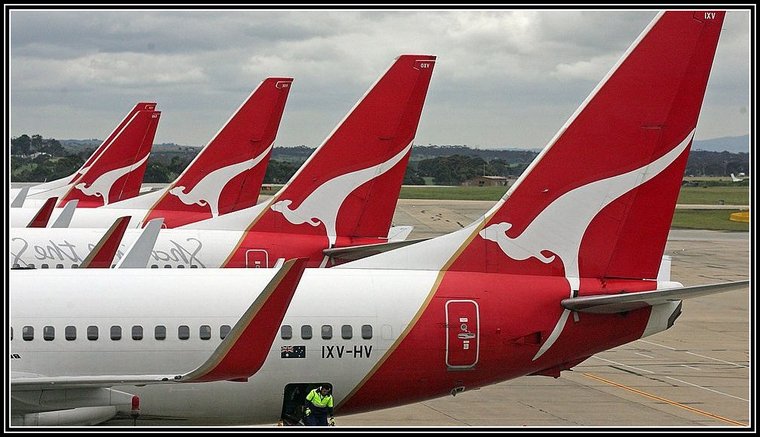
Qantas is expanding its use of sustainable aviation fuel (SAF) by tapping into supplies in California to help reduce carbon emissions on its flights from LA and San Francisco to Australia.
SAF produces up to 80 per cent less emissions than traditional jet kerosene and is compatible with existing aircraft. Airlines around the world are increasing their use of SAF, with demand outstripping supply in most jurisdictions.
US biofuels company Aemetis will supply almost 20 million litres of blended SAF each year for Qantas flights, starting in 2025.
The sustainable fuel will be produced at Aemetis' plant currently under development in Riverbank, California. It will come from certified feedstock from waste products that is then blended with normal jet fuel.
This is Qantas' second major offshore purchase of SAF with flights from London using a blend of sustainable fuel since the start of this year.
Qantas is pursuing a number of additional deals to add more SAF in the US and other international airports. The national carrier is aiming to be net carbon neutral by 2050 and will outline an interim target later this month.
Qantas Group CEO Alan Joyce, who met with Aemetis executives in Los Angeles recently, said sustainable fuels were critical to aviation's transition to a low emissions future.
“Climate change is front of mind for Qantas, our customers, employees and investors and is a key focus for us as we move through our recovery from the pandemic,” Mr Joyce said.
“Operating our aircraft with sustainable aviation fuel is the single biggest thing we can do to directly reduce our emissions.
“We're actively looking to source sustainable aviation fuel for our operations and the deal we're announcing is hopefully one of many we'll make as the market catches up to demand globally.
“At the moment we can only buy sustainable fuels offshore. The US, UK and Europe have industries that have developed with a lot of government support because this is a new field and the long-term benefits for those countries are obvious.
“Qantas has already committed $50 million to support the development of a SAF industry in Australia and we'd be its biggest customer. As well as the environmental and economic benefits, a local SAF industry would reduce the nation's dependence on imported fuels.
“For now, SAF is more expensive than traditional fossil fuels but with the right investment it could grow to a scale where the cost is on par,” added Mr Joyce.
Eric McAfee, Chairman and CEO of Aemetis, said, “The 90 million gallon per year Sustainable Aviation Fuel and renewable diesel plant under development at the 125-acre Riverbank Industrial Complex near Modesto,
California is uniquely located to utilise zero carbon intensity hydroelectric power, local waste wood and non-food feedstocks to produce low carbon jet fuel.
“We look forward to extending our relationship with the Qantas Group as we work to develop further SAF production by expanding our biofuels plants in India and California.”
The deal follows Qantas signing an agreement with one world partners last year to consider purchasing SAF from Aemetis for use out of Californian airports.
The Qantas Group has four pillars to support its target of net zero emissions by 2050:
Sustainable aviation fuels - Working with governments and bioenergy providers on the development of a sustainable aviation fuel industry in Australia and international supply in key ports.
Fleet modernisation - Investing in next generation and lower emission aircraft, which reduce fuel burn.
Operational efficiency - Reducing single use plastics and waste to landfill as well as ongoing work to reduce fuel burn, including through smarter flight planning.
Carbon offsets - Investing in high quality flagship Australian and International projects.
Google Block Ad
NEW YORKERS ARE ONE FLIGHT CLOSER TO NEW ZEALAND WITH NON-STOP FLIGHTS BETWEEN THE BIG APPLE AND AUCKLAND
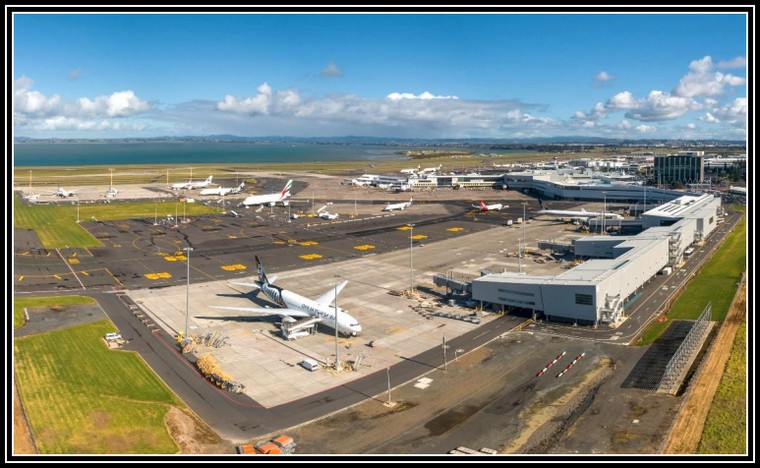
Getting to New Zealand just got easier. Air New Zealand has announced its first flight from New York's John F. Kennedy International Airport to New Zealand will be on 17 September this year.
Landing at Auckland International Airport, the airline will operate the new route three times a week, year-round with its Boeing 787-9 Dreamliner aircraft. The new service further deepens the alliance between Air New Zealand and United Airlines.
Air New Zealand Chief Executive Officer Greg Foran says with international flying on hiatus for almost two years and the New Zealand border reopening on 2 May to US passport holders, this is the moment visitors have been waiting for.
"This is a breathtakingly beautiful part of the world. We've been keeping all the best spots, and hidden gems warm for our visitors while they've been gone and now, we're ready to show them what they've been missing.
"The US has always been a key market for us and this new route cements our commitment to growing opportunities for tourism between the two countries. In the six years leading up to Covid, the US visitor numbers to New Zealand doubled so we expect our much-awaited non-stop service to be incredibly strong year-round."
New Zealand allows its visitors to slow down. It's home to magnificent landscapes, a tremendous amount of adrenalin inducing activities, scenic tours, wellness retreats and world class food and wine trails - there's something for everyone.
Departing New York at 9:55pm, customers will enjoy Air New Zealand's award-winning cabin experience and when they wake up, they'll be able to hit the ground running, heading off the beaten track and immersing themselves in everything New Zealand has to offer.
"Traditionally, flight numbers 1 and 2 are used for an airline's flagship route. And that's what New York will be - our flagship route. We've worked incredibly hard over the past few years to make this ultra-long-haul service a reality - it's one of the longest routes in the world, at just over 16 hours northbound and 17 and a half hours southbound."
There's been a lot of thought put into the onboard experience and a particular focus on the sleep ritual for Premium customers, introducing relaxing balms and sleepy teas and snacks. For those needing help to unwind a little more, the airline will launch 'Zentertainment' on its inflight entertainment system to encourage a restful sleep. And before descent into Auckland, a brunch service including a classic Kiwi flat white coffee will be offered.
Through Air New Zealand's strong partnership with United Airlines, domestic customers across the US can easily connect to New Zealand through New York as well as Air New Zealand's other gateways.
The configuration of the Boeing 787 Dreamliner that will service this route offers more Premium seats than other Dreamliners in the airline's fleet. The flight will offer 27 seats in Business, 33 in Premium Economy, 215 in Economy and 13 Economy Skycouches - innovative private Economy seats that convert into a couch after take-off so customers can spread out, lie down or snooze.
"We know almost three-quarters of visitors from the US travel beyond New Zealand's main tourist centres so once customers arrive in Auckland, we have connections to 20 different regions around the country, all within two hours. Visitors will not run out of places to see."
Google Banner Ad

|
                  |























